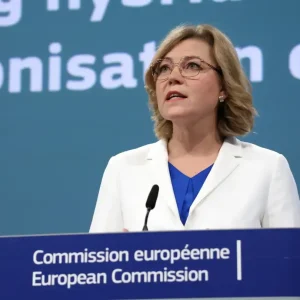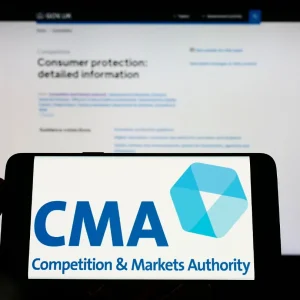
Candidates from the US and Russia will go head-to-head today in a vote to decide the new head of the International Telecommunications Union (ITU), the global regulatory and standards body for the communications industry based at the United Nations. Observers believe the outcome of the ballot could play a key role in deciding the future direction of the internet.

Rashid Ismailov, an experienced telecoms executive and former deputy minister in Russia’s Digital Development, Communications and Mass Media, and American Doreen Bogdan-Martin, the current director of the ITU’s telecommunication development bureau, are the leading candidates to take over as director general of the organisation, with a vote of UN delegates taking place in Romania today.
While victory for Bogdan-Martin is likely to see the organisation maintain its present course, analysts fear that under Ismailov’s leadership the ITU could seek greater control over the internet and back governments that choose to censor internet access for citizens. This could in turn have serious implications for businesses.
Why does the ITU election matter?
Originally founded in 1865 as the International Telegraph Union, the ITU is one of the world’s oldest international organisations and has evolved into an influential body when it comes to setting standards for the implementation of technology.
UN delegates use the ITU as a forum to discuss regulations and policy, and it can be a useful forum for smaller nations to make their voices heard says Emily Taylor, chief executive of cyber intelligence company Oxford Information Labs. “With its one member, one vote structure, the ITU provides a known environment for them to engage on these issues, whereas the more rough-and-tumble multi-stakeholder environments can be quite difficult to get a foothold into,” she says.
Because of this, its general secretary wields considerable influence. Though the internet is a largely decentralised environment, Ismailov has previously lobbied for it to be formally brought under ITU control, and is a proponent of Russia’s so-called splinternet, where platforms from different parts of the world are banned.
If Ismailov wins the election, other countries which have banned or controlled internet access, such as Saudi Arabia and Iran, may feel empowered to take more control over citizens' connectivity. It could also revive the "New IP" plan to create a new infrastructure for the internet, proposed by China in 2020 and widely criticised by other countries. China's delegate is expected to back Ismailov. “New IP would lead to a much more rigid type of network, one that would be less flexible, that would actually, while claiming to be decentralised and so on, be in fact a lot more centralised, and a lot more optimised for surveillance,” Taylor explains.
Changes to the internet will impact businesses
A more splintered internet spells trouble for businesses trading in markets around the world, says cybersecurity expert Christopher Painter, a former diplomat in the US State Department. “I think it's very difficult to have that kind of closed approach and still serve the business interests and commercial interests and economic interests of your country,” he says.
The United States International Trade Commission (ITC) estimates that “the largest cost associated with censorship-related measures are the foregone revenues from market access denial of these types of businesses". It says: "Underlying the monetary costs is the lost opportunity for US businesses to serve millions of new users."
Endorsing governments to take more control of the internet could also heighten cyber risk, Taylor argues. “It would create a lot of complexity for people who are trying to defend their country's network or even corporate networks, because they would have to know and be able to cope with that diversity. They'd have to understand it. Often when you have more complex systems, unpredictable things happen in cybersecurity.”
Painter agrees that a fragmented internet is problematic for cybersecurity teams. “It creates a lot of different islands where it's not clear what's going on, especially in these kinds of closed systems like China's and others," he says. "It creates more and more risks.”
Different rules for different parts of the internet also puts pressure on businesses to self-censor, the ITC report says. “The line between tailoring content for a specific market and self-censorship becomes more blurred when US businesses are reliant on foreign partnerships to operate in a market," it says.
This is already happening to a certain extent, Painter says. “In places like Russia or China where they demand compliance with certain things, don't allow certain apps to be available or certain services, you have to comply with local laws," he says. "These can include allowing [governments] to have access to your systems or source code to some extent."
Victory for Ismailov in today's vote could be seen as giving governments the green light to continue with this kind of behaviour, says Taylor. "It would just be so symbolic, particularly with the backdrop of the Ukraine invasion, the energy crisis and the threats of nuclear war," she says.






